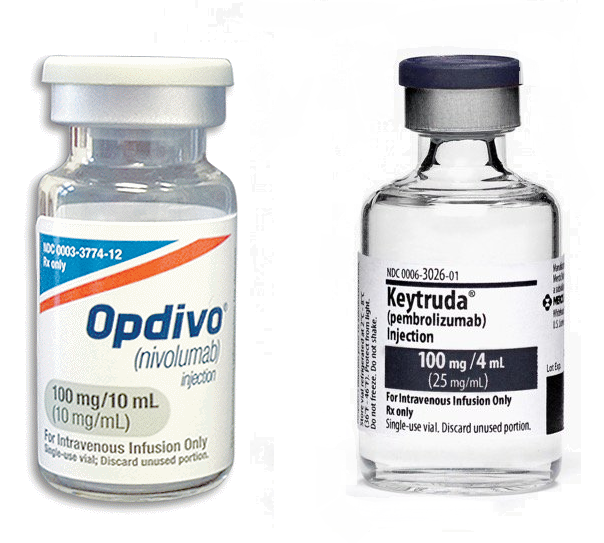Two immunotherapies that gained insurance coverage on Aug. 21 can no longer be prescribed off-label at local clinics, according to the Health Insurance Review & Assessment Service (HIRA).

Instead, expensive anticancer therapies, such as Opdivo and Keytruda, can now only be obtained at 70 large designated hospitals.
Patients who want off-label prescriptions must also wait an additional three months for HIRA to evaluate the prescription, which has incited widespread discontent among the cancer-afflicted community.
Off-label prescriptions refer to a drug prescribed to treat a condition other than it was officially approved for. These types of prescriptions are common in cancer therapies where the drug does not directly attack cancer cells but instead raises immunity to beat the illness. According to Cancer Today, studies suggest around 30 to 50 percent of prescriptions in oncology have been off-label in the U.S.
Immunotherapy developers such as Merck & Co (known as MSD outside the U.S. and Canada) and Bristol-Myers Squibb are rapidly expanding indications for their drugs, proving that their blockbuster drugs are useful for treating more than one cancer.
Although more clinical trials to expand indications for these immunotherapies are underway, many indications have yet to be gained, leaving the choice of prescribing these drugs off-label to private clinicians.
However, this is no longer a possibility.
According to these patients, the government’s recent insurance coverage for blockbuster immunotherapies has created an adverse effect for some cancer patients, barring them from the only treatment alternative they have.
“Even a day is critical for us, how do you expect (cancer patients) to wait (three months)?” cancer patients asked on an online forum.
Cancer patients from an online community have banded together to start a rolling petition. A total of 3,612 people had signed the petition as of last Sunday with plans to protest in front of the Blue House this Saturday.
Off-label prescriptions are vital to those who have no other treatment options. The recent government decision has become a death sentence, according to an online cancer patient community that protested against the policy in front of HIRA headquarters.
However, some in the medical field argue that regulation of off-label therapies is necessary citing safety reasons. They say the treatments have not been medically proved safe or effective for cancer in question.
“The question of patient’s choice of treatment is inevitable,” said Lee Yong-min, policy director of the Korea Medical Association. “Some patients will go abroad to places like Japan where the off-label prescription is laxer.”
Recent trends have shown some cancer patients spending thousands of hundreds of won to go to Japan to receive immunotherapies and chemotherapy.
Cancer patients who can now no longer get immunotherapies off-label are questioning the validity of the new policy.
“It doesn’t make sense for them to say we can’t use the drugs because of its side effects. Who thinks we will abuse a drug that costs 3 million won ($2,669) per shot?” said a member of the online community.

